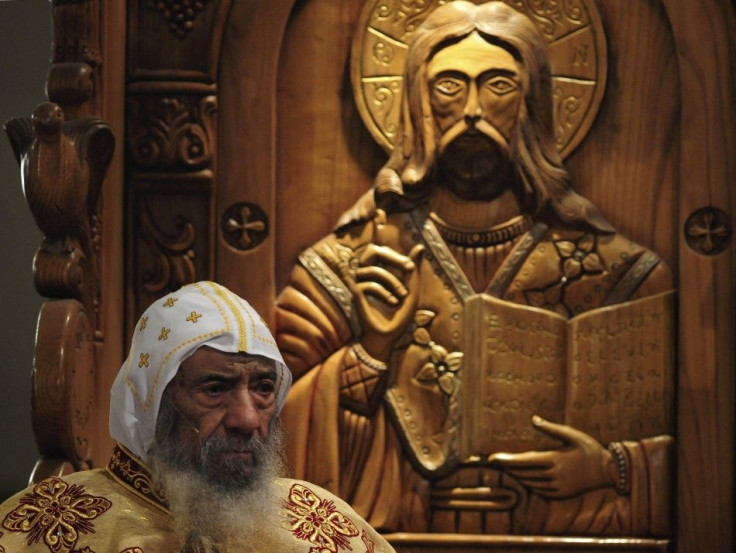Egypt's Coptic Christian Pope Dies

Pope Shenouda III, the head of the Coptic Orthodox Church of Alexandria in Egypt, died Saturday at the age of 88, according to the country's official Middle East News Agency.
Shenouda, also known as Baba Shenouda, was suffering from lung and liver ailments for many years, MENA noted.
The pope's poliitical adviser, Hany Aziz, told Reuters that Shenouda died from complications in health and from old age.”
He led the Copts, one of the oldest Christian churches in the world, for more than 40 years.
In 1923, Shenouda was born Nazeer Gayed Roufail in Asyut in Upper Egypt. In 1954, he became a monk and took the name Shenouda.
Upon the death of Pope Cyril VI in 1971, Shenouda became the pope of Alexandria.
The Copts are believed to account for at least 10 percent of Egypt's population, and they make up the largest Christian community in the Middle East.
The revolution that toppled the dictatorship of Hosni Mubarak last year led to clashes between the Copts and fundamentalist Muslims.
Dozens were killed in violence that included riots, assaults, arson, and attacks on churches.
The emergence of Islamist fundamentalist political parties -- banned under the Mubarak regime -- poses a grave danger to the Copts.
The Coptic church itself is quite diversified, including Orthodox, Catholic, and even Protestant members -- although the Copts are not affiliated in any way with either the Roman Catholic Church or the various Eastern Orthodox churches.
About 4 million Egyptian Copts are believed to live outside of Egypt, including communities in Sudan, United States, Canada, and Australia.
In 1952, when Gamal Abdel Nasser overthrew King Farouk and established a pan-Arab nationalist republic, the status of Coptic Christians became extremely precarious.
Christians, who were resented for their wealth, witnessed the closing of some of their churches and confiscation of properties, prompting many to emigrate.
Meanwhile, Copts who remained in Egypt have faced widespread discrimination, restrictions on church-building and, in the worst cases, assaults and murders by militant Muslims.
Human Rights Watch (HRW) once noted: Egyptians are able to convert to Islam generally without difficulty, but Muslims who convert to Christianity face difficulties in getting new identity papers and some have been arrested for allegedly forging such documents.”
Egyptian authorities have also reportedly underreported the number of Christians in the country to downplay their influence.
© Copyright IBTimes 2025. All rights reserved.





















